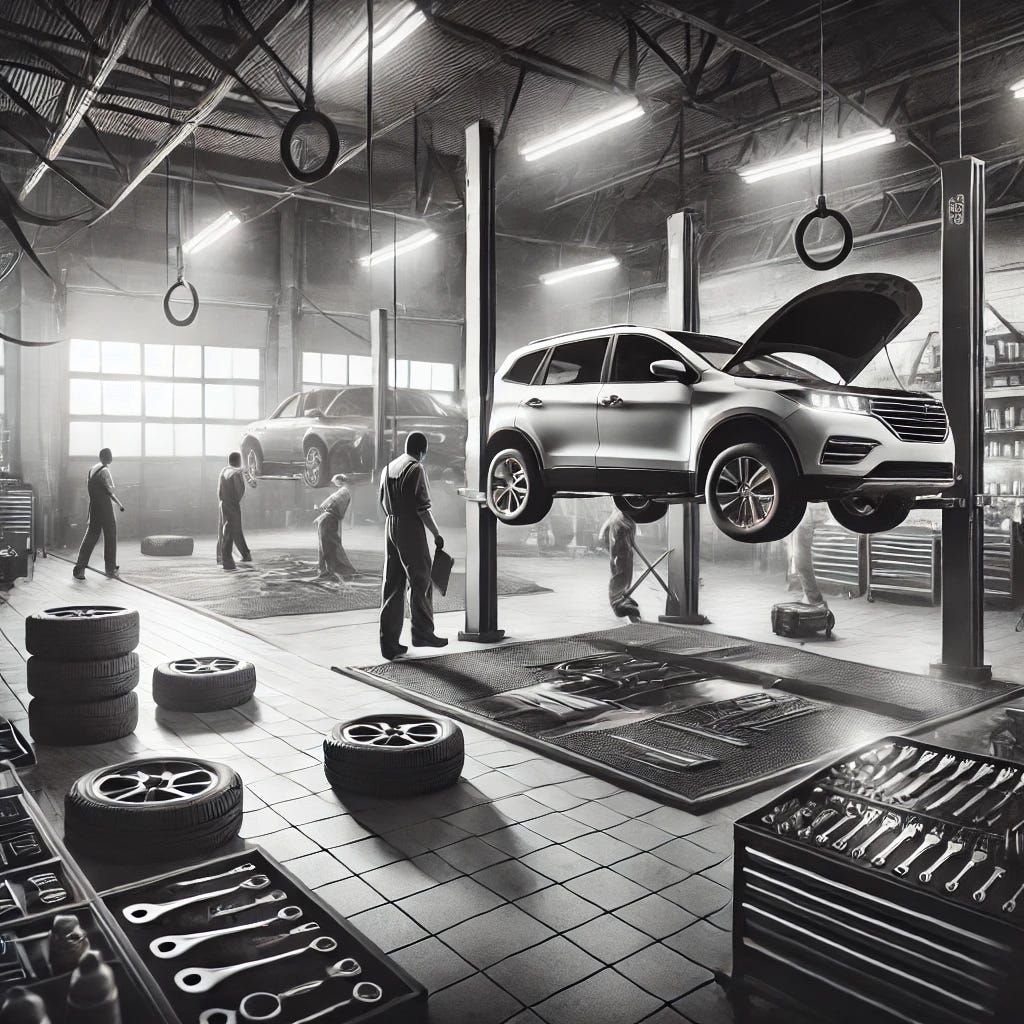Navigating the 2025 Automotive Service Landscape: Challenges and Opportunities
The Rising Importance of Fixed Operations
As we progress through the first quarter of 2025, the automotive industry faces a dynamic set of challenges and opportunities. From fluctuating new car sales influenced by economic uncertainties to evolving consumer expectations in vehicle maintenance, dealerships must adapt to remain competitive. This article delves into the latest trends in fixed operations, the pivotal role of service departments, and strategies to enhance customer satisfaction in this rapidly changing environment.
Economic Climate and Its Impact on New Car Sales
The global economy in 2025 presents a mixed picture for the automotive sector. While technological advancements and a push towards electrification drive innovation, economic uncertainties have tempered consumer enthusiasm for new vehicle purchases. Factors such as inflation, interest rate fluctuations, and geopolitical tensions contribute to a cautious consumer mindset. As a result, many individuals are opting to maintain and service their existing vehicles rather than invest in new ones.
The Rising Importance of Fixed Operations
In this context, fixed operations—encompassing service, parts, and maintenance—have become increasingly vital to dealership profitability. A recent study indicates that service departments now contribute significantly to a dealership's revenue, underscoring the need for a robust focus on customer retention and satisfaction in this area.
Understanding Service Customer Preferences
To effectively capture and retain service customers, it's essential to understand their preferences and behaviors. A comprehensive survey conducted in late 2024 revealed the following insights:
Service Provider Choices: Customers are divided among various service providers, including franchised dealerships, independent repair shops, and chain service centers. While independents have traditionally held a slight edge in customer satisfaction, dealerships are closing the gap by enhancing service quality and customer experience.
Key Decision Factors: The primary reasons customers choose a particular service provider include:
Expertise of Service Staff: Approximately 44% of dealership customers cite the specialized knowledge of technicians as a deciding factor, compared to 32% for independent shops.
Availability of Specialized Parts: Dealerships often have direct access to manufacturer-specific parts, ensuring compatibility and quality, which appeals to many vehicle owners.
The Role of Technology in Service Scheduling
Despite the proliferation of digital communication tools, traditional phone calls remain a predominant method for booking service appointments. Surprisingly, nearly 64% of service customers still prefer to schedule via phone, with Generation Z leading at 65%, surpassing both millennials and Generation X. This preference is attributed to the immediacy and familiarity of phone interactions.
However, the efficiency of this process is crucial. The study found that only 30% of customers could reach a service representative without issues. Common obstacles included being placed on hold—averaging an eight-minute wait—or calls going unanswered. These challenges significantly impact customer satisfaction, as reflected in Net Promoter Scores (NPS):
Uninterrupted Call Experience: NPS of 72.7
Placed on Hold: NPS drops to 39.7
Unanswered Calls: NPS further declines to 26.7
To address these issues, dealerships are increasingly integrating Artificial Intelligence (AI) solutions. AI-powered tools can manage incoming calls, schedule appointments, and provide real-time updates, thereby reducing wait times and enhancing overall customer experience. For instance, AI assistants can handle routine inquiries and bookings, allowing human staff to focus on more complex customer needs.
Leveraging Online Reviews and Reputation Management
In the digital age, online reviews wield significant influence over consumer decisions. More than half (54%) of surveyed customers consider online reviews a critical factor when selecting a service provider. This reliance intensifies among Generation Z, with 77% prioritizing peer reviews in their decision-making process.
To capitalize on this trend, dealerships should:
Encourage Satisfied Customers to Leave Reviews: Proactively requesting feedback can bolster a dealership's online reputation.
Respond to Reviews Promptly: Engaging with both positive and negative feedback demonstrates a commitment to customer satisfaction and continuous improvement.
Emphasizing Vehicle Maintenance Amid Economic Uncertainty
The current economic landscape has prompted consumers to prioritize the upkeep of their existing vehicles. For the first time in three years, a higher percentage of respondents (27%) reported adhering strictly to their vehicle maintenance schedules to keep their cars in optimal condition. In contrast, only 20% admitted to performing maintenance tasks based solely on affordability.
This shift presents an opportunity for dealerships to:
Offer Competitive Service Packages: Providing value-driven maintenance plans can attract cost-conscious customers.
Educate Customers on Preventative Care: Workshops and informational sessions can inform customers about the long-term benefits of regular maintenance, fostering loyalty and repeat business.
Conclusion
As we navigate through 2025, the automotive service industry must adapt to evolving consumer behaviors and economic conditions. By focusing on exceptional customer service, integrating advanced technologies like AI, and maintaining a strong online presence, dealerships can enhance customer satisfaction and drive sustained growth in their fixed operations.
For a comprehensive understanding of current service shopper behaviors and preferences, refer to the full study available at CDK Global.
Sources





